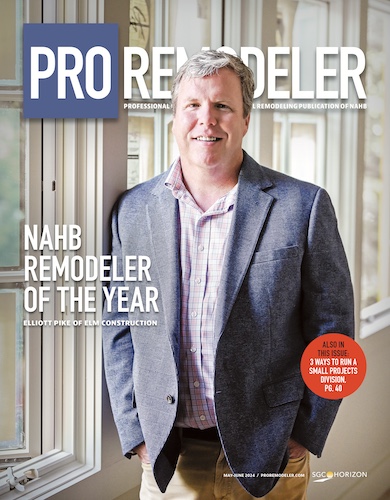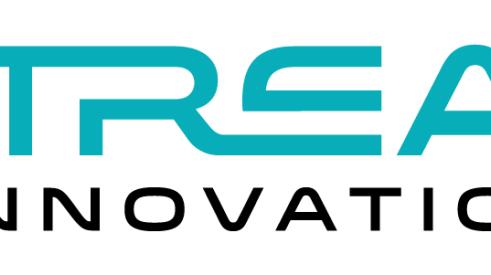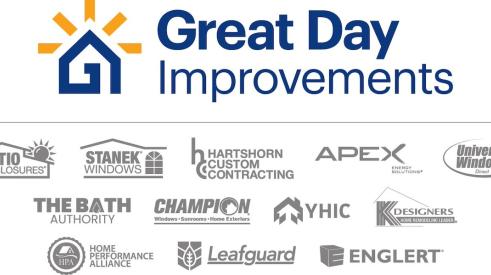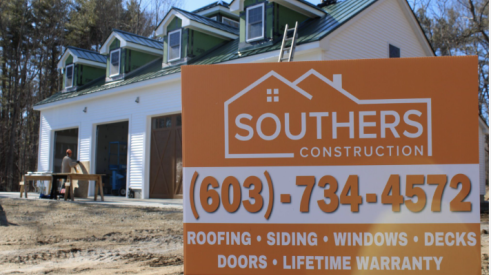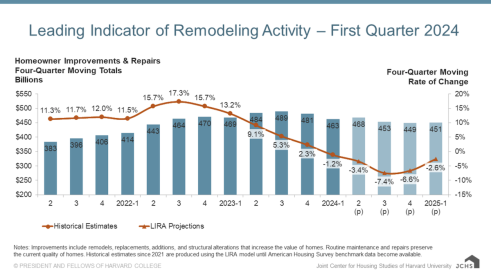I have an appointment with a contractor this morning. He’s coming to the house to look at a few small projects I’d like to get done before everybody gets too busy. My new next door neighbors had nothing but good things to say about work his company did last year right after they moved in. So I called the number they gave me and talked with the office manager, who scheduled the meeting.
Business hours. The whole process got me thinking about whether remodeling pundits, me included, have been too dogmatic when discussing the dos and don’ts of how to be a professional remodeler. Take business hours, for example. For years we’ve drummed it into our readers’ heads that to be “professional” they have to insist on meeting prospects only during business hours. But for many people in these fast-moving, complicated times, a remodeler’s scheduling flexibility is a virtue. My bank has extended its weekday hours beyond the conventional 10-to-4 “bankers’ hours” and keeps its ATM vestibule open on weekends. Even my dentist works every other Saturday because some of his clients can’t get away during weekday business hours. Does that make him less professional or more professional?
Office-only meetings. Remodelers can find a lot of advice about meeting with customers only in the remodeler’s office—or at least making sure the first meeting is in the office. In my case, the projects simply aren’t complicated enough to warrant spending several hours navigating city traffic and meeting at the remodeler’s office. Had he insisted on that, I would have looked elsewhere.
On the other side of the table are remodelers who never had an office or who moved back into a home office after the 2008 recession. And then there is the argument that it’s better to meet first in the owner’s home because the prospects are more relaxed and you can get a better idea of how they live, what their design tastes are, and so on.
Never give them a breakdown. Because General Motors doesn’t break down the cost of a car, remodelers have been told they, too, have no obligation to break down the cost of a remodeling project. But consumers who know how to buy a car probably have no idea how to buy a bathroom remodel. Besides, by the time a homeowner calls you, they’ve already researched costs on the web and know enough to be dangerous.
Transparency is the new buzzword in the remodeling marketplace, and simply refusing to break down costs doesn’t cut it anymore. If you keep cost a big, bad secret, you create suspicion that you have something to hide. Cost is part of the agenda, hidden or otherwise, in every sales interview, but how you handle the discussion determines whether prospects become obsessed with price or focus on other factors that play a larger role in the success of a project. If those factors don’t have value for your prospects, it’s your job to create that value.
Bidding is for losers. I have room for one more, so let’s look at the bidding wars. If you can escape them, go for it, but for most remodelers that’s a fantasy. People still comparison shop, something made easier by the internet and reinforced by myriad consumer sites that recommend they “get three bids” before settling on a remodeler.
If you can’t beat ’em, join ’em by finding a way to make the bidding process work. When I used to bid for architects, they would make a point of explaining to their clients that they’d worked with all three bidders on past projects and all three were equally qualified. When architects used that to justify going with the low bidder, I stopped bidding for those architects, but I didn’t stop bidding. Instead, I made the process less about price and more of a conversation about what the clients would get for the money. And it wasn’t about the “stuff,” it was about the services, the communication, the on-time completion, and whatever else it was that I did better than the other guys. Bidding on price is for losers; otherwise, it’s an opportunity to demonstrate why your company is a better all-around choice.
Do I contradict myself? Very well, then I contradict myself.
Related Stories
NARI Renames Awards Program
The awards program has a new name, but continues its tradition of recognizing the best in residential remodeling
Registration Open for Women in Residential+Commercial Construction Conference 2024
Join 300+ women in construction for three days of impactful idea-sharing and networking in Phoenix
Power Home Remodeling Expands Financing Offshoot with $400M from Goldman Sachs
Industry-leading home improvement company Power plans to grow its fintech offshoot fivefold with new investment
Great Day Improvements Acquires LeafGuard and Englert
Leading home improvement company Great Day Improvements purchases two major brands from private equity firm Audax
Metros with the Highest and Lowest Remodel ROI
First-time homebuyers can find fixer-upper listings priced between 5 to 10% lower than move-in ready homes. The high return on investment of these projects shows that remodeling remains a strong option to navigate the current housing market
Latest Private Equity Activity Signals Continued Strength in Home Improvement
A hot month for private equity means the industry remains opportunity-rich
Pro Remodeler Wins Two Prestigious Jesse H. Neal Awards
The editorial team was honored with one of B2B journalism's most prestigious awards in the categories of Best Subject-Related Package and Best Range of Work by a Single Author
Business Coach Cited in Attorney General Lawsuit Against Contractor
A New England contractor faces a civil suit alleging his company’s growth was tied to a business coach with a model that “encourages fraud"
Harvard Says Remodeling Spending Downturn to Slow
Could the drop in remodeling spending from post-COVID levels regulate soon?
Power Home Remodeling Now Offers Subsidized Childcare
The home improvement giant's move seeks to address a greater industry issue
